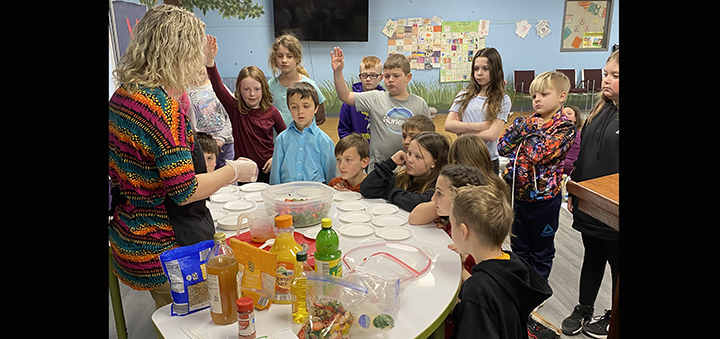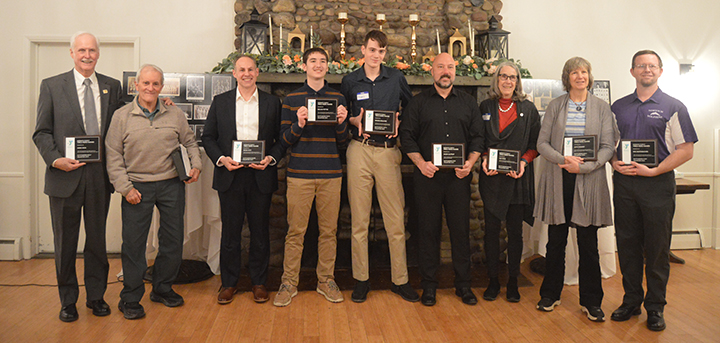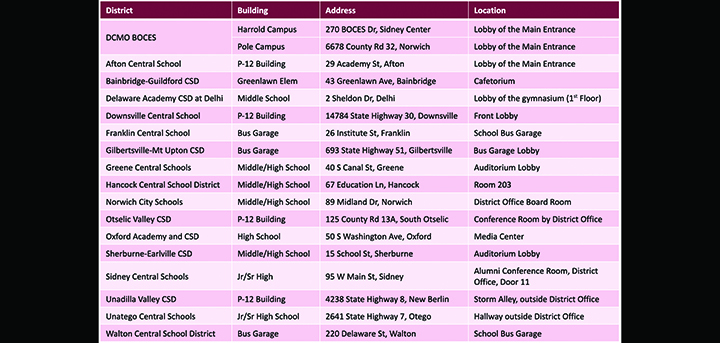Chenango County students learn strawberry fun facts during Agricultural Literacy Week
Snap Ed Nutrition Educator Whitney Kmetz shares the health benefits of Strawberries with Oxford Academy third grade students. New York Agriculture in the Classroom is coordinating with Chenango County Cornell Cooperative Extension (CCE) for the 20th annual New York Agricultural Literacy Week, from March 18 to March 22. (Submitted photo)
CHENANGO COUNTY — New York Agriculture in the Classroom is coordinating with Chenango County Cornell Cooperative Extension (CCE) for the 20th annual New York Agricultural Literacy Week, from March 18 to March 22. This year’s subject is all about about strawberries.
In Chenango County, books and supplies have been delivered to Otselic Valley, Greene, Sherburne Earlville, Unadilla Valley, Afton, Valley Heights, Oxford Academy, Bainbridge Guilford, and Norwich City Schools.
“Community members around the state will be volunteering to read ‘I Love Strawberries’ by Shannon Anderson, to elementary classrooms, pre-k to fifth grade,” said Chenango County Agriculture Literacy Week Coordinator Kristi Gorrell.
The book is written through the eyes of a young girl who tries to convince her parents she is responsible enough to start a strawberry garden. Her journal entries take students through the excitement, trials and dedication of caring for fruit plants.
Gorrell said CCE Chenango 4-H Agriculture in the Classroom Educator Shealyn Otto has been essential to the program’s success and will be reading, and teaching strawberry fun facts to over 30 classrooms as part of the 4-H Agriculture in the Classroom program.
She said they anticipate over 1,500 Chenango County youth will be engaged in this Ag Literacy Week initiative. And said at the completion of the program, each school district will add the book to their library.








Comments